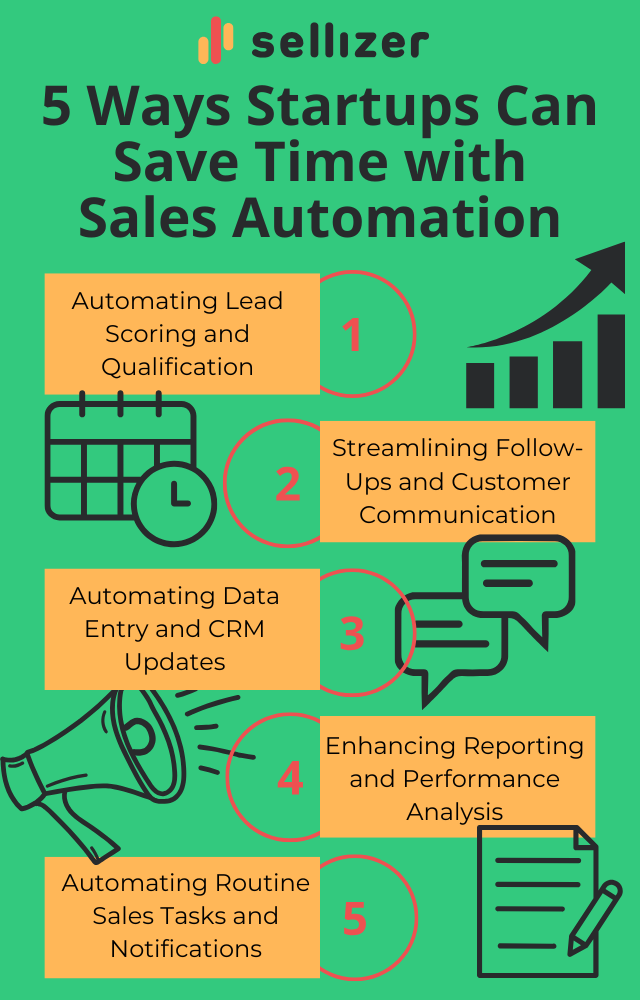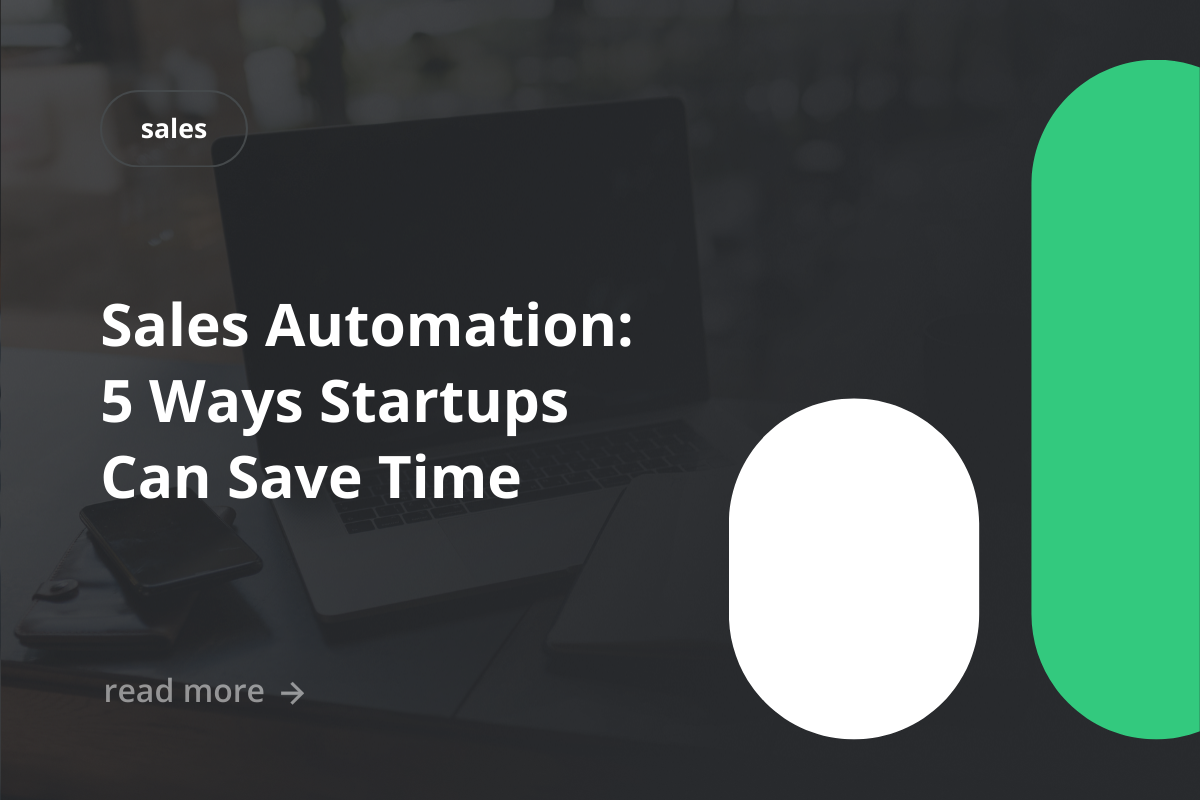Introduction to Sales Automation for Startups
Sales automation is a game-changer for startups, allowing them to streamline their sales processes and focus on what truly matters: building relationships and closing deals. By implementing a sales automation tool, startups can save time, reduce errors, and ultimately increase their revenue.
Why Sales Automation is Essential for Growing Startups
Sales automation is crucial for startups because it helps them manage their limited resources more effectively. With automation, startups can handle repetitive tasks like data entry and follow-ups without needing to hire additional staff. This means that small teams can achieve more, allowing them to scale their operations without the growing pains that often accompany rapid growth.
Benefits of Implementing a Sales Automation Tool
The benefits of using a sales automation tool are numerous. First, it helps to automate sales processes, which can lead to significant time savings. Second, it provides valuable insights through data analytics, enabling startups to make informed decisions. Lastly, automation allows for personalized communication at scale, ensuring that potential customers feel valued and engaged throughout the sales journey.

1. Automating Lead Scoring and Qualification
In the fast-paced world of startups, understanding which leads are worth pursuing can make a big difference. Automating lead scoring helps businesses identify the most promising prospects quickly and efficiently. By using a scoring system, startups can focus their efforts on leads that are more likely to convert into customers, saving valuable time and resources.
How Sales Automation Tools Streamline Lead Scoring
Automated selling tools can simplify the lead scoring process by assigning numerical values to leads based on specific criteria. This can include factors like the lead’s job title, company size, and engagement with your content. For example, a lead who visits your pricing page might earn more points than one who simply opens an email. This way, sales teams can prioritize their outreach based on the scores, ensuring they connect with the most interested prospects first.
Benefits of Automated Lead Qualification for Startups
Automated lead qualification offers several advantages for startups:
- Efficiency: Sales teams can spend less time on unqualified leads and more time on those who are ready to buy.
- Better Focus: By knowing which leads are most likely to convert, teams can tailor their pitches and follow-ups accordingly.
- Increased Sales: Ultimately, focusing on high-quality leads can lead to higher conversion rates and increased revenue.
Automating lead scoring not only saves time but also enhances the effectiveness of your sales strategy, allowing startups to grow faster.
2. Streamlining Follow-Ups and Customer Communication
Sales automation tools can significantly enhance how startups manage follow-ups and customer interactions. By automating these processes, startups can ensure timely responses and maintain a consistent communication flow, which is essential for building strong customer relationships.
Using Sales Automation to Automate Sales Processes for Follow-Up Efficiency
Sales automation tools allow startups to set up automated follow-up sequences. This means that after an initial contact, the system can automatically send reminders or additional information to potential customers. This not only saves time but also ensures that no lead falls through the cracks. Here are some key benefits of automating follow-ups:
- Consistency: Automated follow-ups ensure that every lead receives timely communication, which helps in keeping them engaged.
- Time-saving: Sales teams can focus on closing deals rather than spending time on manual follow-ups.
- Improved tracking: Automation tools often come with tracking features that allow teams to see which follow-ups were opened and responded to, helping refine future strategies.
By knowing how to write effective follow-up email titles, you increase your chance of making a sale.
Personalized Communication at Scale with Automation Sales
While automation is great for efficiency, it’s also important to maintain a personal touch. Startups can use templates that allow for personalization, making each communication feel unique. For instance, they can include specific details about the customer’s needs or recent achievements. This balance of automation and personalization can lead to better engagement and higher conversion rates.
Automating follow-ups doesn’t mean losing the personal touch; it means enhancing it by allowing sales teams to focus on what truly matters: building relationships.
In conclusion, streamlining follow-ups and customer communication through sales automation not only saves time but also enhances the overall customer experience. By leveraging these tools, startups can ensure they stay connected with their leads and customers, ultimately driving growth and success.

3. Automating Data Entry and CRM Updates
Automating data entry and CRM updates can save startups a lot of time and effort. By using sales automation tools, companies can ensure that their customer information is always up-to-date without the need for manual input. This not only reduces the chances of human error but also allows sales teams to focus on what they do best: selling.
How Sales Automation Tools Streamline Lead Scoring
Automated selling tools can help streamline the process of lead scoring by automatically gathering and organizing data about potential customers. This means that sales teams can quickly identify which leads are most likely to convert into sales. By using these tools, startups can prioritize their efforts and allocate resources more effectively.
Benefits of Automated Lead Qualification for Startups
Automated lead qualification offers several advantages for startups:
- Time Savings: Sales teams can spend less time on manual data entry and more time engaging with leads.
- Improved Accuracy: Automation reduces the risk of errors that can occur with manual data entry.
- Better Insights: With accurate and up-to-date information, startups can make more informed decisions about their sales strategies.
Automating data entry and CRM updates is not just about saving time; it’s about creating a more efficient and effective sales process that can lead to increased revenue.
4. Enhancing Reporting and Performance Analysis
Sales automation tools can provide real-time insights that help teams understand their strengths and weaknesses. By leveraging these tools, startups can make informed decisions that drive growth and efficiency.
Using Automation for Real-Time Sales Performance Insights
Sales automation tools can track various metrics, such as the number of leads generated, conversion rates, and sales cycle length. This data is essential for understanding how well your sales team is performing. With automated reporting, startups can quickly identify trends and areas for improvement, allowing them to adjust their strategies accordingly.
Optimizing the Sales Process Based on Automated Reports
Automated reports can highlight key performance indicators (KPIs) that matter most to your business. By regularly reviewing these reports, startups can:
- Identify which sales tactics are working and which are not.
- Allocate resources more effectively based on performance data.
- Set realistic goals and benchmarks for future sales efforts.
Regularly analyzing sales performance not only helps in identifying successful strategies but also uncovers potential pitfalls that need addressing. This proactive approach can significantly enhance overall sales effectiveness.
5. Automating Routine Sales Tasks and Notifications
By streamlining these tasks, teams can focus on what truly matters: closing deals and building relationships. Automation not only saves time but also reduces the chances of human error, ensuring that important tasks are never overlooked.
Using Sales Automation to Automate Sales Processes for Follow-Up Efficiency
Sales automation tools can significantly enhance follow-up efficiency. For instance, they can automatically send reminders to sales reps about upcoming calls or meetings, ensuring that no opportunity slips through the cracks. Additionally, these tools can schedule follow-up emails to prospects, making it easier to maintain communication without manual effort. This means that sales teams can stay organized and proactive, leading to better engagement with potential clients.
Personalized Communication at Scale with Automation Sales
Automation also allows for personalized communication at scale. By using customer data, sales teams can send tailored messages that resonate with individual prospects. This not only improves the chances of a positive response but also helps in building stronger relationships. With automation, startups can ensure that every lead feels valued, even when communication is happening at a larger scale.
Automating routine tasks frees up valuable time for sales teams, allowing them to focus on high-impact activities that drive revenue.
Conclusion
In conclusion, sales automation is a game changer for startups. It helps businesses save time and work smarter, allowing teams to focus on what really matters: building relationships and closing deals. By automating routine tasks, startups can improve their efficiency and boost their chances of success. Embracing sales automation not only simplifies the sales process but also opens up new opportunities for growth. Startups looking to thrive should consider integrating these tools into their sales strategies to unlock their full potential.

Frequently Asked Questions
What is sales automation, and why is it important for startups?
Sales automation uses technology to handle repetitive sales tasks, making it easier for startups to manage their sales process and save time.
How can sales automation help my startup save time?
By automating tasks like lead scoring, follow-ups, and data entry, sales automation allows your team to focus on closing deals instead of getting bogged down in routine work.
What are some common sales automation tools for startups?
Some popular automated selling tools include Sellizer, Salesforce, HubSpot, Zoho CRM, and Pipedrive. These tools help streamline sales processes and improve efficiency.
Can sales automation improve customer relationships?
Yes! It helps maintain consistent communication with customers, ensuring they receive timely follow-ups and personalized messages.
Is sales automation suitable for small businesses?
Absolutely! It is especially beneficial for small businesses, as it helps them maximize resources and compete effectively in the market.
How do I choose the right sales automation tool for my startup?
Consider your specific needs, budget, and the features offered by different tools. Look for tools that can easily integrate with your existing systems and provide good support.



